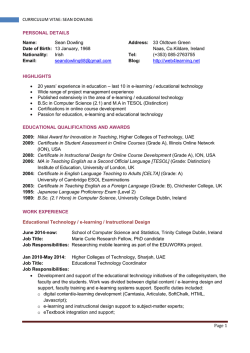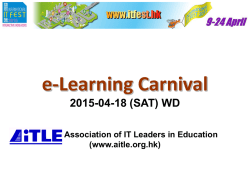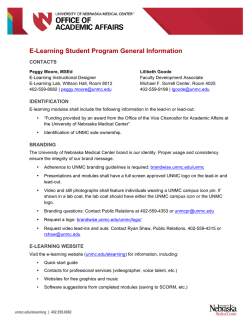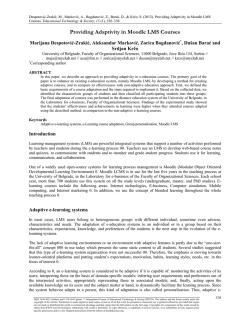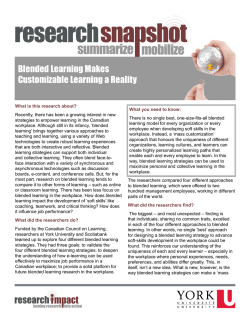
Making E-learning work for management education requires
Making E-learning work for management education requires looking closely at teaching methods. What is this research about? The internet is a powerful tool for supporting learning and selfdevelopment. E-learning online systems are increasingly being used in management education where it is fairly common for students to use the web for tasks such as registering for programs, accessing course materials, submitting assignments, and getting their grades online. Although e-learning is popular and demand is growing in part because it makes learning accessible from anywhere and at any time students desire, the million dollar question is: Does webtechnology help or hold back learning? A key factor for answering this question is whether the objective is to teach students hard skills such as book keeping or soft skills such as critical thinking. What did the researchers do? Researchers immersed themselves in the field of online learning for over a decade of hands on exploration and experimentation. In the process they What you need to know: In order to make learning effective, it is important to know the difference between technical skills and soft skills when selecting e-learning tools and technologies to design and deliver online educational programs. For hard skill development, use first generation systems. For soft skills, a second generation network will be more effective. The researchers offer the following key questions to help educators align their teaching strategies with the use of appropriate learning technologies: 1. Are you teaching hard skills or soft skills? 2. Is your main goal for student to conform and follow your exact instructions, or to create empowered learners? 3. How important is collaboration, joint discussion and group learning? designed and created an e-learning system from scratch and pilot tested it in Figure 1: Typical “First” and “Second Generation” Learning Paths “First Generation” Design The Traditional Course Model Start Here “Second Generation” Design The Self-Organizing Ecology Model End Here = course topics = hyperlinked learning nuggets = linear learning paths = indicates different non-linear learning paths With this approach, there tends to be one sequential learning path with a predetermined start-end. With this approach, there are hundreds of non-linear learning paths – learners can start and end anywhere, driving the learning process according to learning needs. various academic and workplace contexts. In the process, they developed a model to show how e-learning has developed over time. What did the researchers find? The researchers found that e-learning has evolved through two generations. The first generation of e-learning was found to be more useful for teaching technical skills. First generation e-learning systems simply put traditional learning tools like textbooks and classrooms online. The common feature for the first generation approach is that the instructor is in control of the learning process, as in traditional lectures. Second generation e-learning was found to be more useful for teaching soft skills because it is designed to put learners in control of their own learning. In a second generation learning approach, students are presented with a network of connected learning opportunities instead of a library of texts. The networked approach enables every learner to follow a personal, unique learning path. This makes highly customizable learning a reality (see figure 1). Understanding the difference between these two generations was found to be crucial to designing future e-learning programs. How can you use this research? Policymakers, educators, and community groups can use this research to design and improve current e-learning programs. The findings of this research may be applied to management education but would also be helpful in any other program where teaching soft skills like critical thinking online is a priority. About the Researchers Gareth Morgan is a Distinguished Research Professor, York University and Professor in Organization Studies at the Schulich School of Business. Jean Adams is Associate Co-Director, Institute for Research on Learning Technologies, York University and Special Assistant Professor in Policy at the Schulich School of Business. This Research Snapshot is from their study, “Pedagogy First: Making Web-Technologies Work for Soft Skills Development in Leadership and Management Education” which is published in Journal of Interactive Learning Research, 2009, 20.2: 129-155. [email protected] Keywords E-learning, management education, soft skills. Knowledge Mobilization at York York’s Knowledge Mobilization Unit provides services and funding for faculty, graduate students, and community organizations seeking to maximize the impact of academic research and expertise on public policy, social programming, and professional practice. It is supported by SSHRC and CIHR grants, and by the Office of the Vice-President Research & Innovation. [email protected] www.researchimpact.ca This work is licensed under the Creative Commons Attribution-Noncommercial-No Derivative Works 2.5 Canada License.
© Copyright 2026
